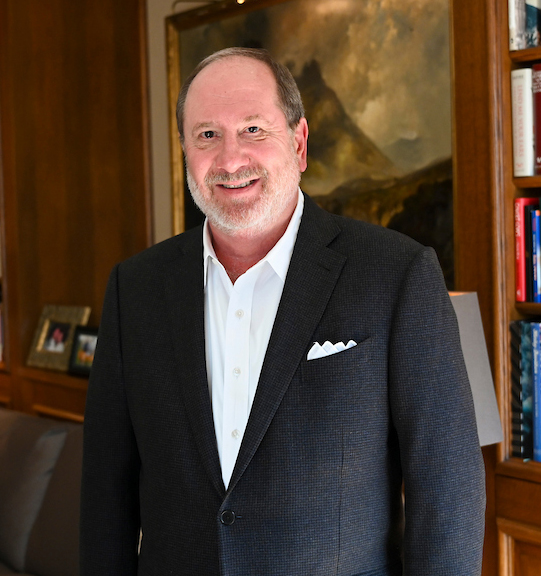 |
Cancer does not take a timeout for a global pandemic. Harbert School of Accountancy
graduate Jan Hollon helps ensure patients in Alabama's River Region have a quality
option for cancer care.
|
 |
School of Accountancy graduate and CEO at Central Alabama Radiation Oncology Jan Hollon
|
During her 26 years in the industry, initially as CFO of Montgomery Cancer Center
and now as CEO at Central Alabama Radiation Oncology in Montgomery, Jan Hollon, a
1980 School of Accountancy graduate, has played a key behind-the-scenes role in helping
ensure patients in Alabama’s River Region have a quality option for cancer care.
“The pandemic has strengthened the awareness that patients rely on their providers
for emotional support as well as their physical needs,” Hollon said. “Our patients
are living with cancer, which in and of itself is frightening.
“During the complications of the pandemic, safety protocols prevented family members
from accompanying the patient to their doctor visit, eliminating the family support
that is so important during your diagnosis and treatment. Our staff have to offer
this support.”
Cancer does not take a timeout during a global pandemic. Specialized radiation oncology
practices have had to find ways to accommodate patients’ needs while remaining financially
viable, despite restrictions implemented for public safety.
“Many individuals who quarantined during the height of the pandemic delayed routine
exams and screenings, causing a temporary decline in cancer diagnoses,” said Hollon.
“Fewer cancer diagnoses caused a decline in patients referred for radiation therapy,
consequently decreasing revenues.
“As we come out of the pandemic, we expect patient numbers will return to previous
levels or greater, potentially with later stages of disease, presenting ongoing challenges
for our staff.”
Looking ahead, Medicare-related hurdles loom, but Hollon is prepared to meet the challenge.
Currently, radiation therapy furnished in free-standing centers is paid for based
on the Medicare Physician Fee Schedule. However, similar services provided in a hospital
outpatient department are paid under a different payment system. Therefore, various
payment differentials are created based upon the site of service and not the services
performed.
“Policies implemented by the Centers for Medicaid and Medicare Services impact a significant
portion of our revenue,” Hollon said. “For several years, CMS has been developing
a new payment model for radiation oncology where prospective bundled payments are
paid based upon cancer type instead of volume or number of treatments.
“Once fully implemented, this will be a dramatic structural change of payment methodology
requiring private practices to be creative in cost-cutting measures.”

 Degrees & Programs
Degrees & Programs
 Faculty & Staff
Faculty & Staff
 Career Development
Career Development
 Recruiters & Industry
Recruiters & Industry




